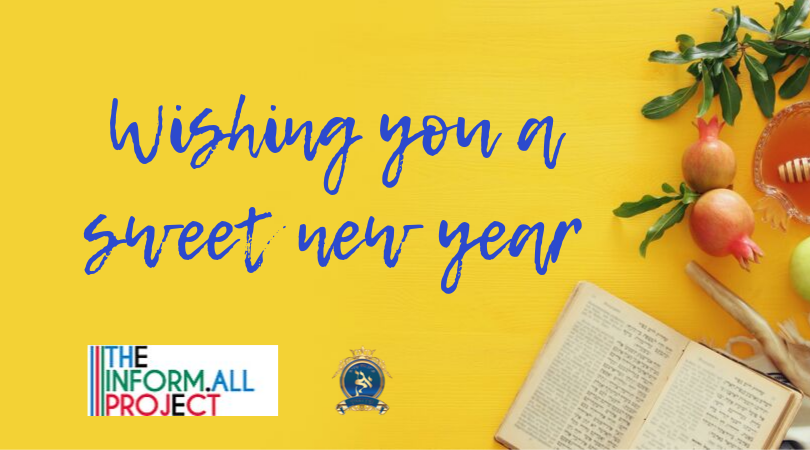This Rosh Hashonah Spare a Tear for Hashem
Rosh Hashonah – Spare a Tear for Hashem
Harav Y. Reuven Rubin
Families are the nucleus of a meaningful life yet they often become the laboratory that cooks up chaos. Brothers fall out over a myriad of perceived grievances, children turn away from parents, it’s all there, the tapestry of mankind’s tests and challenges.
Let me share an example. Two brothers, fine upstanding members of their community, held up as proper Baalei Batim are blessed to still have ageing parents who, although independent, need some help and understanding. One brother is there every day, running errands, calling doctors, making his parents as comfortable as possible. After all, they are loving parents who have striven throughout their marriage to give their children everything. The other, well he is a busy business executive, willing to send in flowers once in a while and even make the infrequent phone call. However he is never really there for them, he ‘talks the talk’ but in reality he just doesn’t seem to think nor empathise with the enormity of his parent’s situation.
Now, the casual reader will share a sigh and move on to the next page, after all it seems quite clear who the hero in this case is. But please just wait a moment, because in this tableau of complex human relations lies the secret of Rosh Hashonah.
Every one of us has a Father who cares for us with every breath we take. He facilitates our entirety, and yet, do we ever think of His discomfort? Kaveyuchle the Eibishter followed us into golus, destroyed His chosen home, the Bais Hamikdosh, intensely bears our pain, and suffers with our circumstances.
Yet, we enter into Rosh Hashonah beseeching Hashem for our long life, our prosperity, and so much more, with nary a thought for the Eibishter’s pain. The Ribbono Shel Olam is in golus with us, yet we seem to fail to empathise with His pain. Are we not just as guilty as the ‘busy’ son who stirs himself to call only once in a while?
Rosh Hashonah is about Crowning Hashem as the King of the entire world, yet we don’t really think of His sorrow over the Golus we brought about. He gives and gives to us, year after year. We take and ask for more, praying entirely for our own needs, without stopping first to pray for the honour of the Shechinah, for the honour of the holy city, or for the honour of Klal Yisroel in Golus.
The Mevaser Tov writes the following:
‘The Tzaddikim would make these matters a central focus of their prayers. They would cry together with Hashem in commiseration with the plight of the Shechinah.
I once watched my father, the Chelkas Yehoshua Zt”l, recite Shema. When he finished, he began to sob uncontrollably. After davening I asked him what he was crying about. He told me that the Divrei Binah writes that after reciting Shema, one should cry and beg for mercy on behalf of the Shechinah in Golus.’
In previous generations there were Tzaddikim who would leave their homes during the Three Weeks. They would wander from town to town, only to try to get a sense of the hardships of exile and be able to better empathise with the sorrow of the Shechinah.
Kabolas ohl Malchus Shomayim requires us to think about the honour of Heaven and not just about our own personal needs. We must commit ourselves to serving Hashem, even when we do not have everything that we think we need.
As we all know, character flaws such as arrogance are so repugnant that Hashem cannot even bear to stay in the same world with such a person.
As we prepare to crown Hashem as our King on Rosh Hashanah, we must first make sure that we are indeed fit to be His subjects, that we do not offend Him with our arrogant, greedy or vindictive behaviour, and that we bring honour to His Name with behaviour that causes Him to say,
“You are My servant Yisroel, in whom I take pride.”
We have no right to beseech Hashem for our earthly needs whilst not contemplating the Golus of the Shechinah.
The Yied Hakodosh of Pshischa explained the verse from Aishes Chayil, “She rises while it is still night to give food to her house,” to mean that the era directly preceding the dawn of Redemption will be marked by great prosperity. Wealth is a trial of our moral integrity. We can all too easily lose sight of what is important in our lives. Hashem bestows upon us all that we need, may we give over our heartfelt tefillos the Kaveyuchle the Eibishter finds it possible to return from His Golus, bringing us with Him. With this in mind, may we all be gebentched with a kesivah ve’chasima tova.


